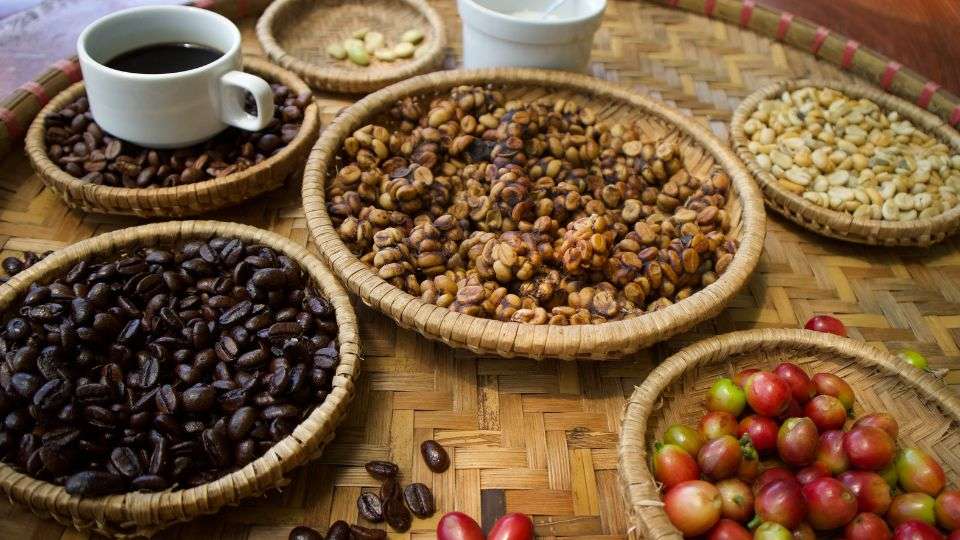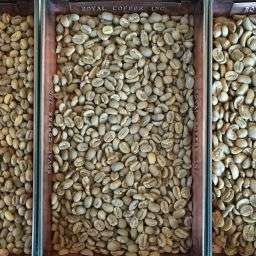
Kopi Luwak, also known as cat poop coffee, boasts a unique origin steeped in the history of Indonesian coffee culture. This coffee’s distinct production process dates back to the 18th century, during the Dutch colonial period in Indonesia. Local farmers, prohibited from harvesting their own coffee beans, discovered that the Asian palm civet, a local wild cat, would eat the coffee cherries and excrete the beans, which remained undigested.
These beans, collected from the feces, were found to produce an exceptionally smooth and aromatic coffee. This serendipitous discovery led to the creation of one of the world’s most sought-after and expensive coffees due to its unique production method and the labor-intensive process of collection.
The Process of Producing Kopi Luwak
The journey of Kopi Luwak from cherry to cup is as extraordinary as its flavor. It begins with the selective consumption of ripe coffee cherries by the Asian palm civet. The civet’s natural selection process ensures that only the best cherries are consumed, contributing to the coffee’s unique taste.
Once ingested, the cherries undergo a natural fermentation process in the civet’s digestive tract, where enzymes break down the proteins that give coffee its bitter taste. The beans are then excreted, collected, thoroughly cleaned, sun-dried, and finally roasted to produce a coffee that is remarkably smooth, with a rich and complex flavor profile.
Flavor Profile and Characteristics
Kopi Luwak is renowned for its unique flavor profile, often described as less bitter than traditional coffee, with a hint of chocolate, a smooth body, and a complex aroma. This distinctive taste is attributed to the natural fermentation process occurring within the civet’s digestive system, which alters the chemical structure of the beans, reducing their bitterness and enhancing their inherent flavors.
When compared to regular coffee, Kopi Luwak is noted for its lack of acidity and exceptionally smooth finish, making it a standout in the coffee world for those seeking a unique and luxurious experience.
Ethical Concerns and Animal Welfare
The production of Kopi Luwak has raised significant ethical concerns, particularly regarding the welfare of civets involved in the process. On civet farms, animals are often kept in small, cramped cages and are force-fed coffee cherries, a diet that does not meet their nutritional needs and can lead to health problems. These conditions starkly contrast with the civets’ natural habitat and behaviors, as they are solitary and nocturnal animals requiring space to roam and a varied diet.
In response to these ethical concerns, there have been efforts towards more ethical production methods. These include sourcing beans from wild civets without disturbing their natural behaviors or habitat, as well as initiatives to improve the living conditions of civets on farms, with some producers moving towards cage-free environments and natural diets to mimic wild conditions as closely as possible.
These efforts aim to ensure the welfare of civets while still producing Kopi Luwak, although the effectiveness and prevalence of such ethical practices vary widely across the industry.
Environmental Impact
The production of Kopi Luwak also has implications for the environment and civet populations. The demand for this coffee has led to the capture of civets from the wild, which can disrupt local ecosystems and reduce civet populations in their natural habitats.
Moreover, the emphasis on this single product can lead to monoculture practices in coffee farming, potentially reducing biodiversity and negatively impacting the sustainability of production methods. Efforts to mitigate these impacts include promoting sustainable farming practices that protect civet habitats and encourage biodiversity, as well as supporting wild-sourced Kopi Luwak, which does not involve capturing civets or altering their natural environment.
Health Benefits and Risks
While Kopi Luwak is often touted for its unique flavor and potential health benefits, such as lower acidity compared to regular coffee, which may be easier on the digestive system, and its antioxidant properties, there are also health concerns related to hygiene and safety.
The process of collecting beans from civet feces raises questions about the cleanliness of the beans, even after washing and roasting. Although the risk of disease transmission from civets to humans through coffee beans is considered low, the potential for bacterial contamination during the collection and processing stages cannot be entirely dismissed.
Economic and Cultural Impact
The production of Kopi Luwak has a profound impact on local economies and communities, especially in Indonesia, where it originated. For many farmers and producers, Kopi Luwak represents a lucrative product due to its high price on the global market. This coffee’s rarity and unique production process contribute to its premium status, attracting coffee enthusiasts willing to pay a significant amount for a small quantity.
However, the economic benefits are often offset by the ethical and environmental concerns associated with its production. In cultural terms, Kopi Luwak has become a symbol of luxury and exoticism in the coffee world, embodying a rich history and tradition that dates back centuries in Indonesian coffee farming.
Imitation and Alternatives
Efforts to replicate the distinctive flavor profile of Kopi Luwak without involving civets have gained momentum in recent years. These imitation processes often involve simulating the enzymatic digestion effects on coffee beans through scientific methods, aiming to produce a similar taste without the ethical and environmental drawbacks.
While these alternatives seek to cater to the demand for unique coffee experiences, they also highlight the ongoing debate about the value and authenticity of Kopi Luwak compared to other luxury coffees. Such innovations offer coffee aficionados ethical choices without compromising on the exclusive experience Kopi Luwak is known for.
FAQs
Why is Kopi Luwak so expensive?
The high cost of Kopi Luwak is attributed to its rarity, the labor-intensive process of collection, and its unique flavor profile. The meticulous process from selection by civets to the final product justifies its premium price.
Can you taste the difference with regular coffee?
Many connoisseurs argue that Kopi Luwak offers a distinct taste with a smoother, less acidic flavor than regular coffee, though opinions on its superiority vary widely.
Is it ethical to consume Kopi Luwak?
Ethical considerations revolve around animal welfare and environmental impact. Consumers are encouraged to seek out ethically sourced Kopi Luwak, where civets are not harmed, and sustainable practices are employed.
Conclusion: Summarizing Kopi Luwak
Kopi Luwak embodies a unique intersection of taste, tradition, and controversy. Its distinct production method and flavor profile have cemented its status as a coveted item in the coffee world, while also raising important questions about ethical and environmental sustainability.
As the coffee industry evolves, the ongoing challenge will be to balance the demand for exotic experiences with the imperative of ethical production practices. Consumers play a crucial role in this equation, as their choices can drive the market towards more humane and environmentally friendly options.









